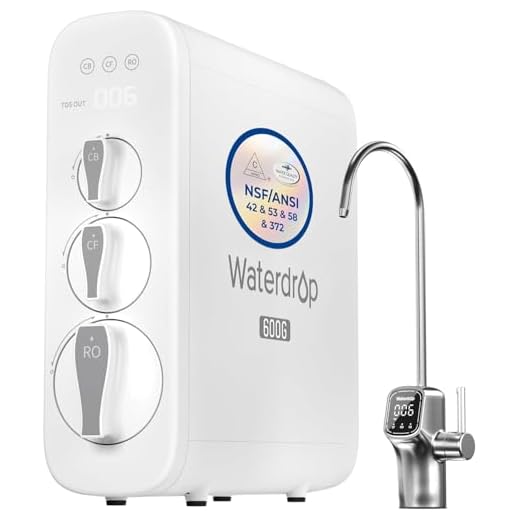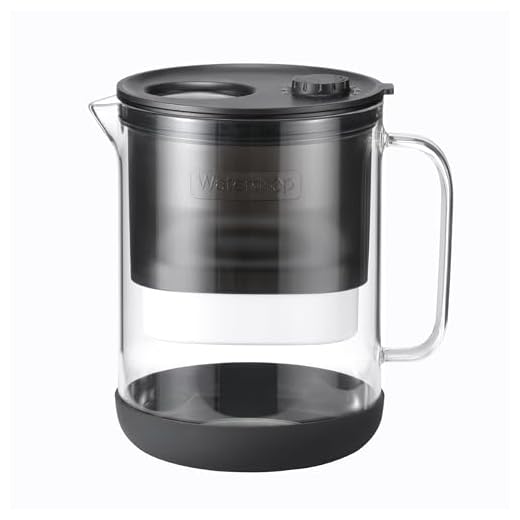




Considering Installation Options
The installation process for a water filter can vary significantly depending on the type and model chosen. Homeowners should assess whether they are comfortable handling the installation themselves or prefer hiring a professional. Point-of-use filters, such as faucet-mounted or pitcher models, often require minimal setup and can be easily installed by most individuals. Conversely, under-sink or whole-house systems may involve more complex plumbing work, which might be best suited for someone with technical expertise.
For those considering a DIY approach, numerous online tutorials can guide the installation process. However, it is crucial to ensure that all components are compatible with existing plumbing systems. Hiring a professional can offer peace of mind, especially for more intricate systems where proper installation ensures optimal performance and compliance with local plumbing codes. Balancing convenience and technical capability will aid in making the right choice for your water filtration installation needs.
DIY vs. Professional Installation
Determining whether to undertake a DIY installation or seek professional help often depends on your comfort level with home improvement tasks. Many water filters designed for residential use come with straightforward instructions. For those handy around the house, this option can save money while also providing a sense of accomplishment. However, certain systems, particularly more complex ones involving plumbing changes or electrical components, may require advanced skills or tools. In such cases, hiring a professional could save time and prevent mistakes that lead to costly repairs.
Professional installation usually comes at a higher upfront cost but can offer peace of mind. Experts can ensure that the system is installed correctly and adheres to local regulations. They also have the experience to address any unforeseen complications that might arise during installation. If you’re considering a more advanced filtration system that includes reverse osmosis or additional purification stages, consulting with a professional may be the best course of action. Evaluating your current skills, the complexity of the system, and your willingness to work with plumbing can help you make the right decision for your situation.
Budgeting for Your Water Filter
When budgeting for a water filter, it’s essential to consider both the upfront costs and long-term savings. Initial expenses can vary significantly depending on the type and brand of filter you choose. Basic pitchers may seem more affordable at first glance, but they often require frequent replacements, leading to higher overall spending. On the other hand, more extensive systems, such as reverse osmosis units, tend to require a larger initial investment but can offer substantial savings in terms of filter replacement and increased longevity.
Additionally, it’s important to factor in potential savings on bottled water and plumbing repairs. Cleaner water can lead to reduced wear on appliances and fewer health-related expenses, providing a longer-term return on investment. Evaluating the cost-effectiveness of various options helps ensure that you make a choice that aligns with your financial goals while also meeting your water quality needs.
Initial Costs vs. Long-Term Savings
When purchasing a water filter, it’s essential to examine both initial costs and the potential for long-term savings. Many filters have upfront costs that can be misleading, as they may appear expensive compared to simple pitcher filters. However, investing in a more efficient system can lead to significant savings over time, especially if it reduces the need for bottled water or minimizes costly plumbing repairs caused by contaminants.
Consideration of maintenance costs is also crucial. Some systems require regular replacement of filters, which can add to ongoing expenses. In contrast, others may be more durable and require less frequent maintenance. Analyzing these factors will help you determine whether the initial investment will be worthwhile as you calculate the total cost of ownership over the filtration system’s lifespan.
Researching Brands and Models
Exploring different brands and models of water filters can feel overwhelming due to the abundance of options available in the market. Look for manufacturers that have established a reputable presence in the industry. Consider the specific contaminants you wish to filter out when comparing products. Some models excel in removing chlorine or heavy metals, while others target microorganisms or sediment. Take note of any certifications that indicate the filter’s effectiveness, such as those from NSF International or the Water Quality Association.
When analyzing consumer reviews, pay close attention to both positive and negative feedback. Look for consistent patterns in user experiences, as these can provide valuable insight into potential issues or long-term performance. It may also be beneficial to check dedicated consumer advocacy websites or forums for unbiased opinions. Remember that a high rating does not always guarantee a perfect product for your needs. Focus on reviews that discuss factors relevant to your lifestyle, such as filter replacement frequency and overall maintenance requirements.
Analyzing Consumer Reviews
Examining consumer reviews is essential when selecting a water filter. These reviews offer firsthand experiences from users, revealing details about performance, effectiveness, and any issues encountered. Look for patterns in feedback regarding taste improvements, ease of use, and maintenance requirements. Positive and negative comments can provide a balanced perspective, helping you understand what to expect from a specific brand or model.
Additionally, it is crucial to consider the credibility of the reviews. Focus on those from verified purchasers or reputable sources, as they are more likely to reflect genuine experiences. Beware of overly positive or negative reviews that may seem biased. Detailed reviews often go beyond mere star ratings and highlight specific aspects such as installation processes and customer service interactions, providing valuable insight into the overall satisfaction users have had with their purchase.
FAQS
What factors should I consider when choosing a water filter for my home?
You should consider installation options, your budget, the specific contaminants you want to remove, the filter’s capacity, and the maintenance requirements.
Is it better to install a water filter myself or hire a professional?
It depends on your comfort level with DIY projects and the complexity of the installation. Simple systems can often be installed by homeowners, while more complex systems may require a professional.
What are the initial costs associated with buying a water filter?
Initial costs can vary widely based on the type and brand of the water filter you choose, but it typically includes the purchase price of the unit and any installation fees if applicable.
How can I determine the long-term savings of a water filter?
Consider the cost of bottled water, potential plumbing repairs from hard water, and the lifespan of the filter. Long-term savings can be estimated by comparing these costs against the filter’s maintenance and replacement costs.
Why are consumer reviews important when choosing a water filter?
Consumer reviews provide insights into the filter’s performance, reliability, and customer satisfaction, helping you make a more informed decision based on real-world experiences.
Related Links
How to Maximize the Convenience of Portable Water Filters
Roundup of the Most Accessible Water Filter Options

